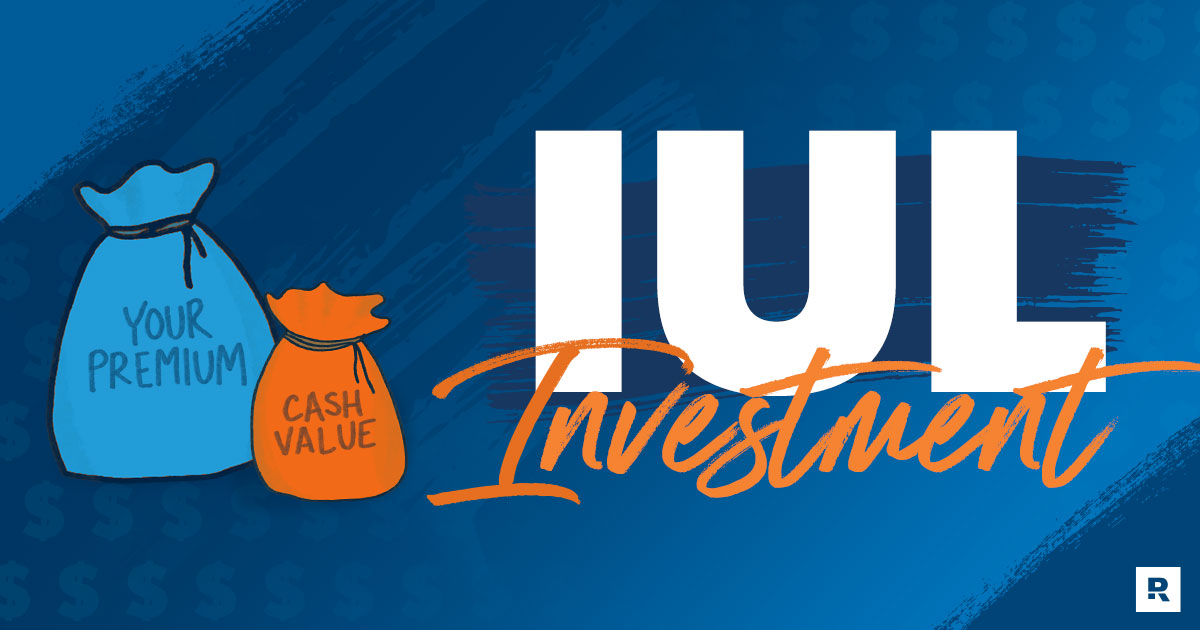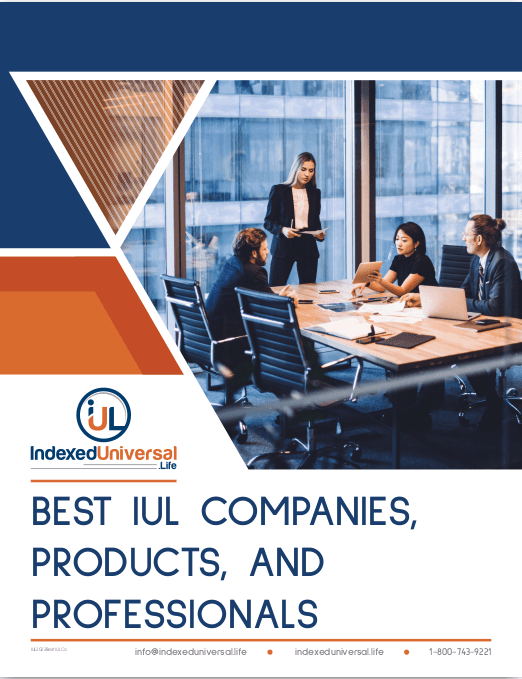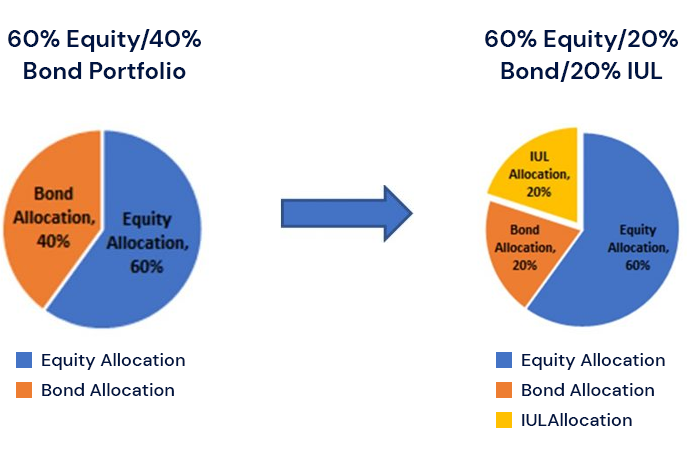All Categories
Featured
Table of Contents
Do they compare the IUL to something like the Vanguard Total Supply Market Fund Admiral Shares with no load, a cost ratio (EMERGENCY ROOM) of 5 basis factors, a turn over proportion of 4.3%, and an extraordinary tax-efficient record of circulations? No, they compare it to some horrible proactively managed fund with an 8% lots, a 2% ER, an 80% turn over proportion, and an awful record of short-term resources gain circulations.
Mutual funds frequently make yearly taxable distributions to fund owners, even when the worth of their fund has actually decreased in value. Shared funds not just need revenue coverage (and the resulting annual tax) when the shared fund is rising in value, yet can likewise impose revenue taxes in a year when the fund has dropped in worth.
You can tax-manage the fund, collecting losses and gains in order to minimize taxed distributions to the financiers, but that isn't in some way going to transform the reported return of the fund. The ownership of common funds might call for the mutual fund proprietor to pay estimated taxes (variable universal life vs indexed universal life).

IULs are simple to place so that, at the owner's fatality, the recipient is exempt to either revenue or estate tax obligations. The very same tax obligation decrease strategies do not work almost also with shared funds. There are numerous, typically pricey, tax obligation traps associated with the moment trading of shared fund shares, catches that do not apply to indexed life Insurance.
Possibilities aren't really high that you're going to go through the AMT because of your common fund circulations if you aren't without them. The rest of this one is half-truths at ideal. For instance, while it holds true that there is no revenue tax obligation due to your beneficiaries when they inherit the profits of your IUL policy, it is also true that there is no earnings tax as a result of your beneficiaries when they inherit a shared fund in a taxable account from you.
Index Universal Life Insurance Cost
There are better means to prevent estate tax obligation concerns than acquiring financial investments with reduced returns. Mutual funds may trigger income tax of Social Protection benefits.

The development within the IUL is tax-deferred and may be taken as tax totally free earnings using fundings. The plan owner (vs. the common fund supervisor) is in control of his/her reportable revenue, therefore allowing them to reduce or even get rid of the taxation of their Social Security benefits. This is great.
Right here's another marginal issue. It holds true if you get a mutual fund for say $10 per share right before the circulation date, and it distributes a $0.50 circulation, you are after that going to owe tax obligations (most likely 7-10 cents per share) in spite of the fact that you haven't yet had any gains.
But in the end, it's really about the after-tax return, not just how much you pay in taxes. You are going to pay more in taxes by making use of a taxable account than if you purchase life insurance. However you're also possibly going to have more money after paying those taxes. The record-keeping needs for having common funds are considerably extra complex.
With an IUL, one's records are maintained by the insurer, copies of annual declarations are sent by mail to the proprietor, and circulations (if any kind of) are amounted to and reported at year end. This set is likewise kind of silly. Naturally you should maintain your tax obligation records in instance of an audit.
Cap Life Insurance
All you have to do is push the paper into your tax folder when it turns up in the mail. Barely a reason to buy life insurance coverage. It resembles this person has actually never bought a taxed account or something. Common funds are generally part of a decedent's probated estate.
On top of that, they go through the delays and expenses of probate. The profits of the IUL plan, on the various other hand, is always a non-probate circulation that passes beyond probate straight to one's named recipients, and is as a result exempt to one's posthumous creditors, unwanted public disclosure, or similar hold-ups and prices.
Medicaid disqualification and lifetime earnings. An IUL can offer their owners with a stream of earnings for their whole life time, regardless of how lengthy they live.

This is helpful when organizing one's affairs, and converting possessions to earnings before a retirement home arrest. Mutual funds can not be transformed in a similar fashion, and are usually taken into consideration countable Medicaid assets. This is an additional dumb one supporting that bad people (you recognize, the ones that require Medicaid, a federal government program for the inadequate, to pay for their retirement home) ought to utilize IUL as opposed to shared funds.
Best Iul Life Insurance Companies
And life insurance coverage looks dreadful when compared rather against a pension. Second, individuals who have money to acquire IUL above and beyond their pension are going to need to be terrible at taking care of cash in order to ever before get approved for Medicaid to spend for their assisted living home costs.
Persistent and incurable ailment cyclist. All plans will allow an owner's easy accessibility to money from their plan, frequently forgoing any kind of surrender fines when such individuals endure a major illness, need at-home care, or become restricted to a nursing home. Shared funds do not offer a similar waiver when contingent deferred sales costs still put on a shared fund account whose proprietor needs to offer some shares to money the costs of such a stay.
Universal Benefits Insurance
Yet you get to pay even more for that advantage (motorcyclist) with an insurance coverage. What a lot! Indexed global life insurance coverage offers survivor benefit to the recipients of the IUL owners, and neither the owner neither the beneficiary can ever shed money as a result of a down market. Common funds supply no such warranties or death advantages of any kind.
Now, ask yourself, do you really need or want a survivor benefit? I definitely don't require one after I get to financial independence. Do I desire one? I intend if it were low-cost sufficient. Obviously, it isn't inexpensive. Usually, a buyer of life insurance policy spends for the real cost of the life insurance benefit, plus the prices of the plan, plus the revenues of the insurer.
Best Indexed Universal Life Companies
I'm not totally certain why Mr. Morais included the entire "you can't lose money" again right here as it was covered fairly well in # 1. He simply wished to duplicate the finest marketing factor for these points I intend. Once more, you do not shed nominal bucks, but you can shed real dollars, in addition to face severe chance cost as a result of reduced returns.

An indexed global life insurance policy policy owner may trade their plan for a totally different policy without activating revenue tax obligations. A shared fund proprietor can not move funds from one common fund business to another without offering his shares at the previous (hence triggering a taxable event), and buying brand-new shares at the latter, usually based on sales charges at both.
While it is real that you can exchange one insurance coverage for an additional, the factor that individuals do this is that the first one is such a horrible plan that also after purchasing a new one and experiencing the very early, unfavorable return years, you'll still appear in advance. If they were marketed the best policy the very first time, they should not have any type of need to ever before trade it and undergo the very early, negative return years once more.
Latest Posts
Indexed Universal Life Insurance Good Or Bad
Universal Life Insurance Providers
Group Universal Life